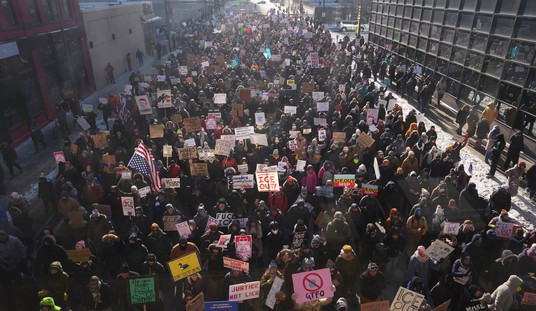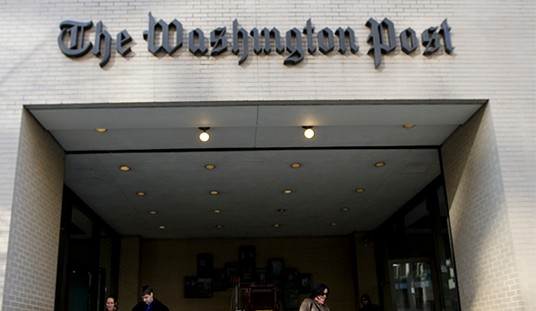“Members of Congress have bought stock in companies while laws that could affect those companies were being debated in the House or Senate, the CBS news program ’60 Minutes’ said on its website.
“The program’s correspondent, Steve Kroft, at news conferences on Nov. 3 asked Representative Nancy Pelosi, a California Democrat, and Representative John Boehner, an Ohio Republican, about stock purchases, according to a report today in the San Francisco Chronicle, which is published in Pelosi’s district…
“Boehner, the speaker of the House, said he didn’t make day- to-day decisions about stock purchases and hasn’t ‘for years.’ Pelosi, former speaker of the House, said it was ‘a false premise’ that she would act legislatively on the basis of an investment, according to videos posted on the Breitbart.tv website.”
“Laws against insider trading – making stock bets based on information the public doesn’t have – do not apply to Congress. Studies have shown that stock portfolios on Capitol Hill outperform the market. Legislation that would ban insider trading by members and staffers has languished…
“Several studies have shown that members of Congress and their staffs do better in the stock market than the public. A 2011 study by four university researchers found that a portfolio that mirrored stock purchases by House members from 1985 to 2001 beat the market by 6 percent a year. The same authors found that senators beat the market by 12.3 percent from 1993 to 1998.
“The Wall Street Journal reported a year ago that in 2008 and 2009 at least 72 congressional aides traded shares of companies that their bosses helped oversee. The staff interviewed included a Pelosi aide who said her husband made the trades based on newspaper reports and that she knew nothing about them.”
“Pelosi received her Visa IPO almost two weeks after a potentially damaging piece of legislation for Visa, the Credit Card Fair Fee Act, had been introduced in the House. If passed, the bill would have cut into Visa’s profits substantially by lowering so-called ‘interchange fees,’ the 1% to 3% charge retailers pay Visa when customers use Visa cards for purchases. Interchange fees are a critical source of revenue for the four credit card companies–$48 billion in 2008, to be exact…
“Despite broad public support for the bill—77% in one study—Pelosi saw to it that the bill never made it to the House floor…
“Pelosi eventually supported something called the Credit Card Reform Act. Curiously, the all-important interchange fees went untouched by that legislation. Instead, the bill stated that the interchange fee issue should simply be ‘studied.’ The bill’s other measures would not affect Visa but rather its client banks. In short, the Credit Card Reform Act ensured that Visa and the other credit card companies dodged a potentially costly bullet.”
“The so-called 1705 Loan Guarantee Program and the 1603 Grant Program channeled billions of dollars to all sorts of energy companies. The grants were earmarked for alternative-fuel and green-power projects, so it would not be a surprise to learn that those industries were led by liberals. Furthermore, these were highly competitive grant and loan programs—not usually a hallmark of cronyism. Often fewer than 10 percent of applicants were deemed worthy.
“Nevertheless, a large proportion of the winners were companies with Obama-campaign connections. Indeed, at least 10 members of Obama’s finance committee and more than a dozen of his campaign bundlers were big winners in getting your money. At the same time, several politicians who supported Obama managed to strike gold by launching alternative-energy companies and obtaining grants. How much did they get? According to the Department of Energy’s own numbers … a lot. In the 1705 government-backed-loan program, for example, $16.4 billion of the $20.5 billion in loans granted as of Sept. 15 went to companies either run by or primarily owned by Obama financial backers—individuals who were bundlers, members of Obama’s National Finance Committee, or large donors to the Democratic Party. The grant and guaranteed-loan recipients were early backers of Obama before he ran for president, people who continued to give to his campaigns and exclusively to the Democratic Party in the years leading up to 2008. Their political largesse is probably the best investment they ever made in alternative energy. It brought them returns many times over.
“These government grants and loan guarantees not only provided access to taxpayer capital. They also served as a seal of approval from the federal government. Taxpayer money creates what investors call a ‘halo effect,’ in which a young, unprofitable company is suddenly seen to have a glowing future. The plan is simple. Invest some money, secure taxpayer grants and loans, go public, and then cash out. In just one small example, a company called Amyris Biotechnologies received a $24 million DOE grant to build a pilot plant to use altered yeast to turn sugar into hydrocarbons. The investors included several Obama bundlers and fundraisers. With federal money in hand, Amyris went public with an IPO the following year, raising $85 million. Kleiner Perkins, a firm that boasts Obama financier John Doerr and former vice president Al Gore as partners, found its $16 million investment was now worth $69 million. It’s not clear how the other investors did. Amyris continues to lose money. Meanwhile, the $24 million grant created 40 jobs, according to the government website recovery.gov.”
Click the image to listen.









Join the conversation as a VIP Member